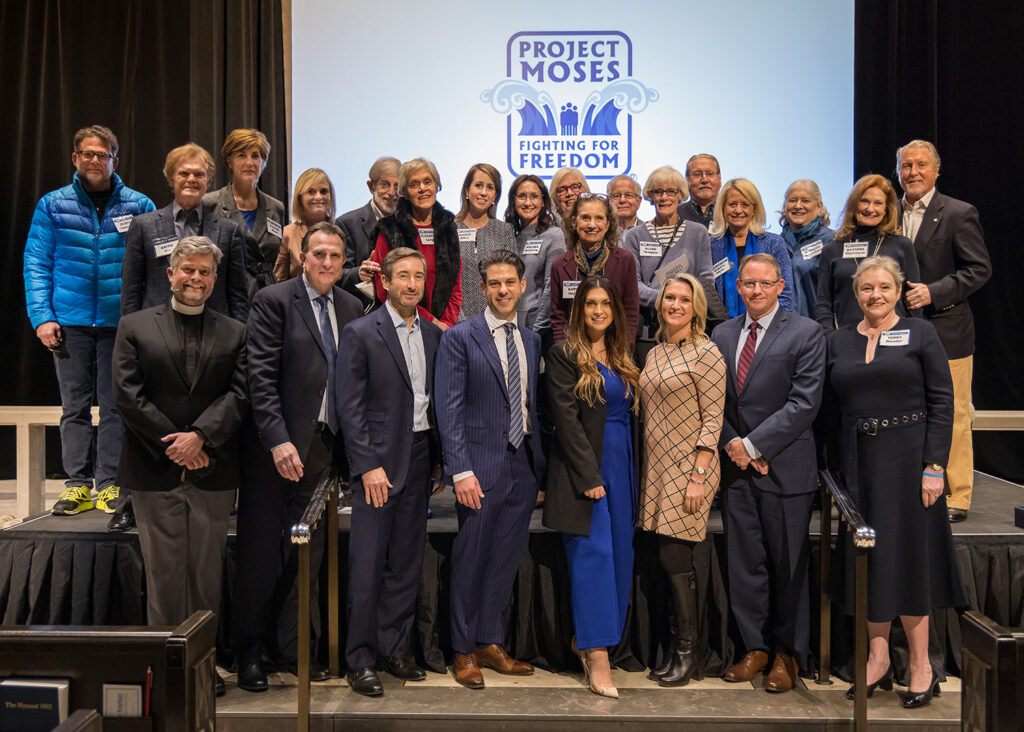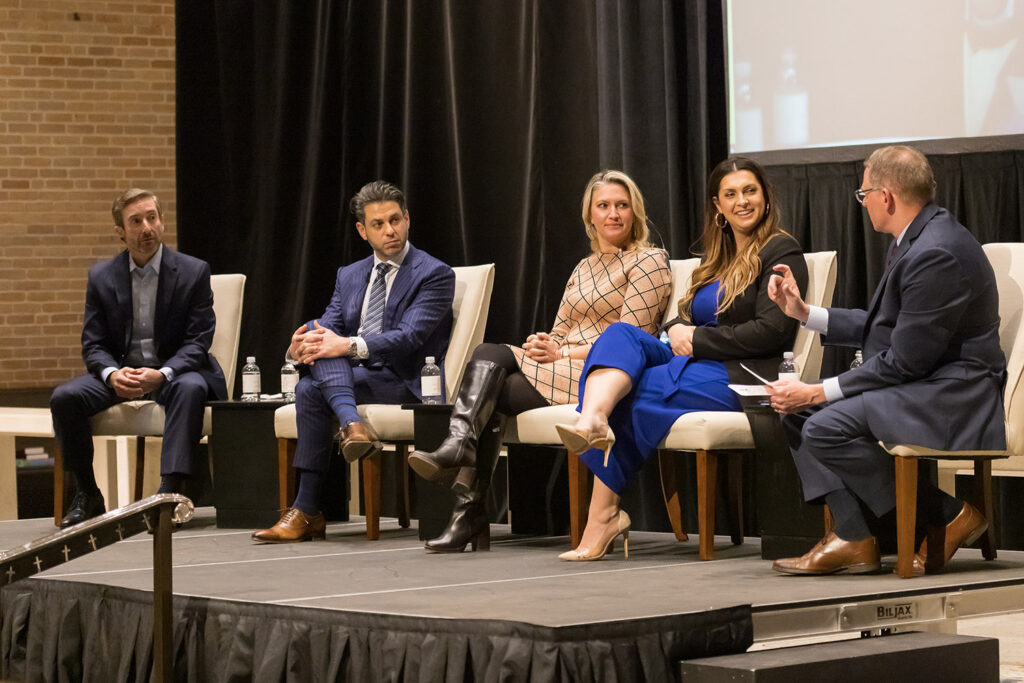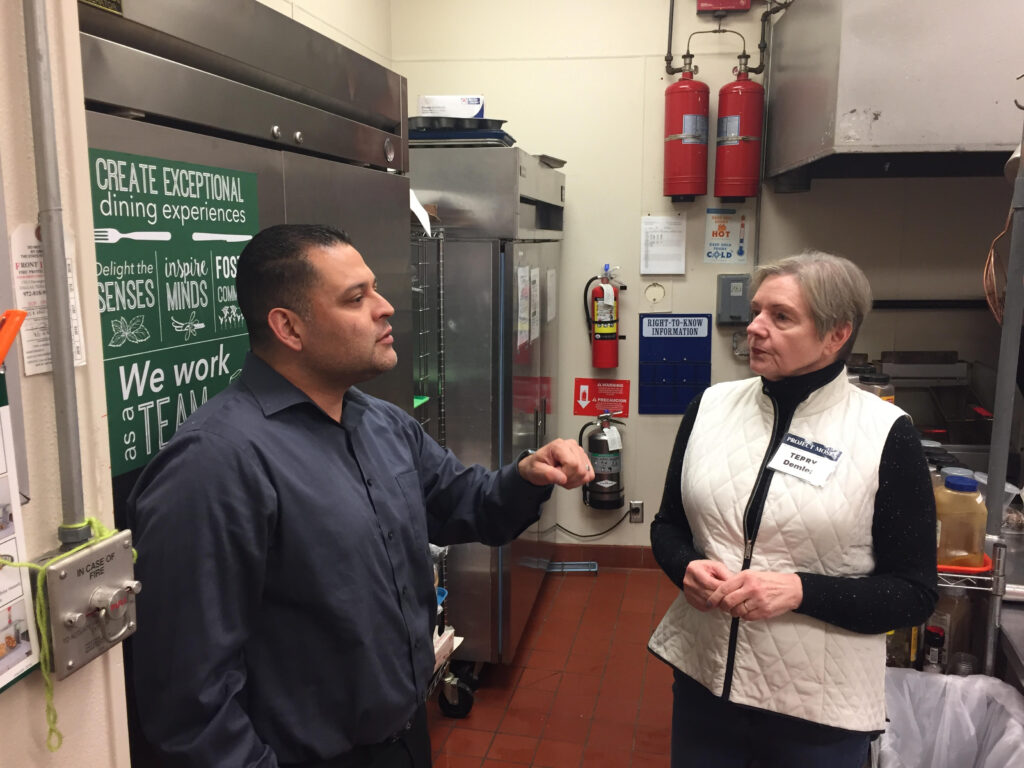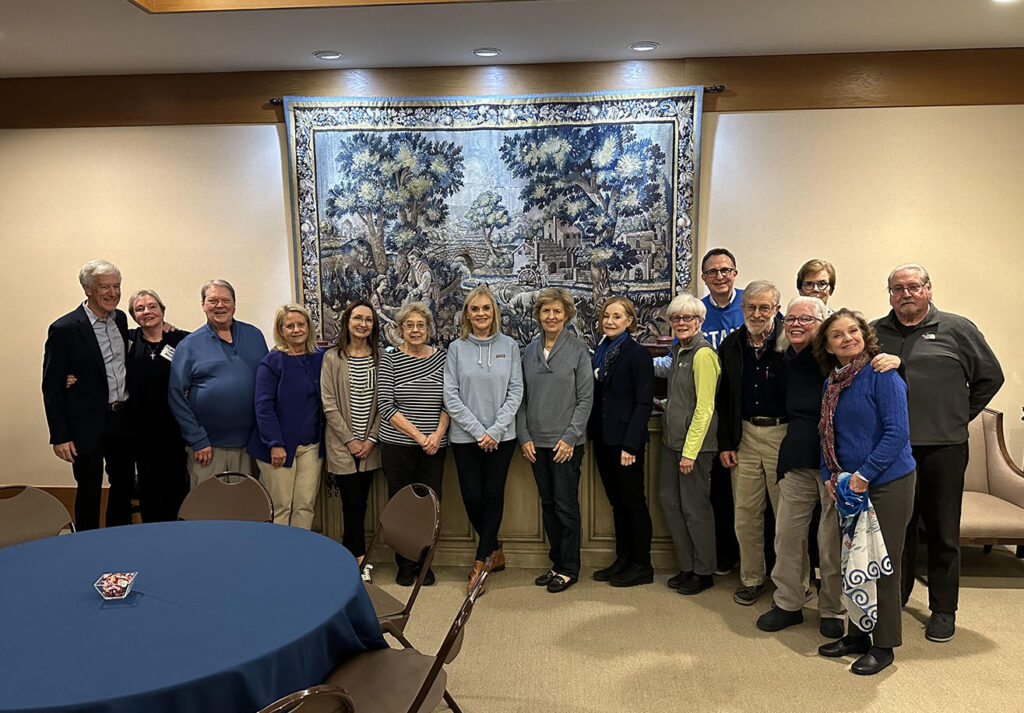Story by Lawson Martin. Photos provided by SMAA Project Moses.
An initiative at Saint Michael and All Angels Episcopal Church in Dallas called Project Moses is committed to assisting human trafficking survivors, raising awareness, and collaborating with local agencies for rehabilitation.

In 2015, Mark and Terry Demler, parishioners at Saint Michael and All Angels Episcopal Church, volunteered at a symposium held at the church in conjunction with the Episcopal Diocese and the Catholic Diocese. They listened to the speakers at the symposium educating parishioners about human trafficking. Mark and Terry knew nothing about human trafficking, locally or globally, so they said the symposium was eye-opening.
“We were appalled by what we learned and saw,” Mark says.
Mark says he has to give massive credit to Terry for the creation of Project Moses because after that symposium, the topics discussed and the information they learned about human trafficking sat with her and impacted her immensely. She wondered why they hadn’t heard more about this issue in the past, and it was tugging at both her and Mark’s hearts.
Mark and Terry were both on the cusp of retirement and wanted to find a way to occupy their time and do something that would significantly impact the community. The couple discussed it further and agreed that addressing the issues of human trafficking was a vital subject matter that they and their fellow parishioners should get involved with.
“After reflection, we realized it was God gently guiding us to embrace this topic of human trafficking – to not let it go, to learn more. To find out how we might fit into the work being done against the issue. Could we possibly make a difference?” they wondered.

In September 2016, Mark and Terry formed Project Moses and developed the ministry to align with their mission and outreach at Saint Michaels. Their goal was to highlight the truth of human trafficking while sharing the light of Christ with survivors.
During their first meeting, around 30 parishioners showed up, and representatives from UNICEF educated them about human trafficking. After that first meeting, Mark knew it was important for their ministry to reach out to the community, especially to a segment of the population they were previously unaware of. He and Terry recognized that this population had experienced apparent trauma, so they felt compelled to help.
They started holding monthly meetings for Project Moses and now have close to 100 people involved with the cause.
Project Moses operates under three pillars, according to Terry. The first pillar revolves around education, not only for those involved with Project Moses but for other parishioners in the church, as well as the general public.
“There are so many people who don’t have any idea about human trafficking and about how invasive it is in our own backyard, much less the rest of the world,” Terry says, which is why she believes education is so crucial.

Another pillar of their ministry is to build partnerships and relationships with local agencies across the Dallas Metroplex working on the rights and rehabilitation of the many victims of this crime.
One of those organizations is called Restored Hope Ministries, a nonprofit that gives sex-trafficked and sexually exploited women and children a sense of hope through intervention and safe housing. The nonprofit’s program provides 12 to 18 months of transitional housing and physical and spiritual self-help programs to these women.
As part of the third phase of Restored Hope Ministries’ safe-house program, women can move into an apartment complex as they transition into a new life stage while working toward independence. The Project Moses team took one of the apartments, cleaned it up, and furnished it. They included everything the woman who would soon be moving into the apartment would need, such as dishes, linens, and furniture.
“Our team would find out what colors she liked and various things because they wanted to make it her’s,” Terry says.
Aside from furnishing the apartments, parishioners involved in Project Moses have also signed Valentine’s Day cards for women engaged in Restored Hope Ministries’ program. Restored Hope holds a graduation ceremony for their survivors as they leave the first program, and Project Moses has attended those, too, to cheer those women on.
“It’s just wonderful to see someone coming out of so much trauma,” Terry says.

When Project Moses first started, the ministry joined the North Texas Coalition Against Human Trafficking, which includes over 50 anti-trafficking agencies throughout North Texas. By being a part of NTCAHT, they were able to make connections with several organizations that had safe houses, local police departments, and local legislators.
“There are many organizations in this city in the Metroplex that are focused on this issue, and we’re very fortunate,” Terry says.
When they connected with the Dallas Police Department, parishioners with Project Moses asked Dallas Police what they needed within their agency to help them better fight human trafficking. Police said when they would rescue a woman off the streets, they would bring her to a private room to be interviewed. They told Project Moses that they would really like help with securing items to help make a woman feel comfortable, such as new clothes like T-shirts, sweatpants, and socks.
“We would also provide snacks and beverages,” Mark says.
After a while, Mark and Terry joined the NTCAHT board, where they continued to connect with members from the Dallas Police Department. They said this has helped them further develop their relationships with organizations working toward a common goal. This aligned with the third pillar they operate on, which is advocacy.
“We’ve grown to understand what the process looks like, how women are rescued off the street, and what takes place after that,” Mark says, showing his appreciation for the Dallas Police Department. “Most of what we get involved with is the process after that when the rehabilitation starts because the women have a variety of needs.”
Marks says early on he learned that one of those needs for many women was finding a spiritual element following all the trauma they have been through. Because they are a faith-based organization, the parishioners share their wisdom and love of Christ with human trafficking survivors.
A group of individuals involved with Project Moses also wanted to fill trafficking survivors’ stomachs in addition to their hearts. Hence, they were able to connect with organizations that would benefit from meal delivery, such as New Friends New Life, a nonprofit that restores and empowers trafficked and sexually exploited teen girls, women, and their children, as well as an organization called Rescue Her, which provides short-term crisis response services to adult female victims of sex trafficking in the Dallas-Fort Worth area who are in emergency need of assistance.
One or two times throughout the month, volunteers from Project Moses will cook meals and deliver the meals to the survivors served by these organizations.
“We have some excellent cooks in the ministry,” Mark says. “Pizza is always good, but sometimes a home-cooked meal beats that in spades.”
In 2022, as Project Moses grew, they launched the Project Moses Ambassador Program, selecting ministry volunteers as primary liaisons connecting the ministry with partner agencies. According to Mark and Terry, this initiative aims to improve communication among their partners and helps them gain a better understanding of what trafficking survivors need.
In addition to food, items, housing, and finding a spiritual element, Mark, Terry, and the ambassadors learned that many survivors were seeking education.
“Our ambassadors learned probably the biggest need for survivors, other than the basics in getting back the dignity that they might have lost during the process of being trafficked, is to continue their education wherever they were in the process before being trafficked,” Mark says.
This inspired the ambassadors to start the Project Moses Scholarship Program to aid the survivors’ educational aspirations. The scholarship helps survivors afford additional costs of education that may be a barrier for them, such as the cost of books, transportation, and school materials.
The month of January was National Human Trafficking Prevention Month, which is a month dedicated to raising awareness about human trafficking and educating the public on how to spot and prevent the crime. This month directly aligns with Project Moses’s mission, and Mark and Terry believe it is so crucial to spread awareness of human trafficking because this is a topic that “affects all of us.”
“Just as a human being, having that happen is something none of us should allow,” Terry says. “Watching the beauty of these survivors grow wings is very humbling because of what they’ve been through. They’re just such a joy.”
“Making people aware that human trafficking is there, starting within our parish and working with the community, is something that’s sorely needed to get these survivors and the agencies that are working with them the resources that are needed to get their lives back in order,” Mark says.
Anyone looking to get involved with Project Moses should visit its website or email projectmosesht@gmail.com.
Sign up with your email address to receive good stories, events, and volunteer opportunities in your inbox.